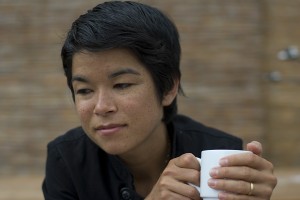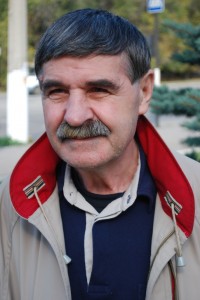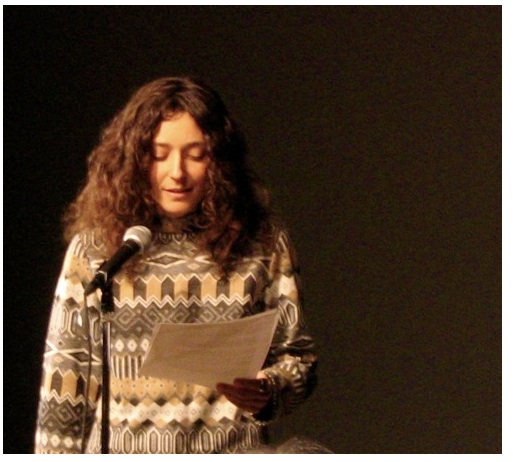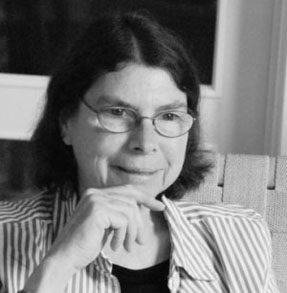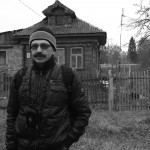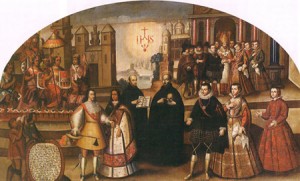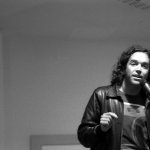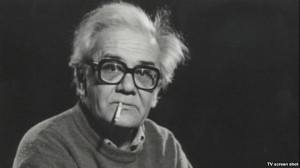Two poems by Wang Xiaoni translated by Eleanor Goodman.
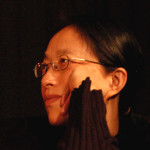
 Wang Xiaoni is a poet of small gestures. The energy in her work comes not from grand pronouncements or abstractions, but from the details of daily life. She writes of trains and pockets, cold weather and potatoes, windows and the moon. Yet this poet’s daily life also includes ghosts, ancient scarecrows in dresses, and lotus ponds that bubble black. Translating her work involves maintaining the delicate groundedness that underpins even her wildest leaps into the metaphorical. For Wang Xiaoni, a peanut is always a peanut, even if it sometimes morphs into an infant. And a flustered train that eats iron is still just a train, after all.
Wang Xiaoni is a poet of small gestures. The energy in her work comes not from grand pronouncements or abstractions, but from the details of daily life. She writes of trains and pockets, cold weather and potatoes, windows and the moon. Yet this poet’s daily life also includes ghosts, ancient scarecrows in dresses, and lotus ponds that bubble black. Translating her work involves maintaining the delicate groundedness that underpins even her wildest leaps into the metaphorical. For Wang Xiaoni, a peanut is always a peanut, even if it sometimes morphs into an infant. And a flustered train that eats iron is still just a train, after all.
–Eleanor Goodman
月夜里经过的火车
by Wang Xiaoni之一
什么经过,是什么,实在凄凉,实在是沉。
有个家伙长久地在钝物上拖铁索
载火的车,吃的铁,穿的铁,想的铁。
惊坐起来,我四处摸铁索。
之二
大地发白,月亮正在下葬
葬礼拖得无限长。
被那怪物吃进去的赶路者
漫长地忍受这冰凉的晚上一寸寸勒进肉。
大地蹦跳着迎接磨损
光亮就将耗尽,满天轰隆隆的都是黑。
之三
月亮偶然睁开它的三角眼
夜晚翻滚。
正转弯的火车,屁股先亮了
拉满家书的邮政车,晶晶露白骨。
据说骨头不值钱,心情抵万金。
之四
心啊,没什么可喜欢的
只能喜欢夜空背后黑汪汪的深。
火车慌不择路
用力抓紧镶金嵌银的土地
生怕被抛出去,生怕凌空倒坠。
蜈蚣在打滑,四脚朝天,呵呵,就在这淡月夜。
之五
火车,在鬼影下挨家挨户敲玻璃
披白斗篷火车的,一个玩伴也不放过。
谁能跳出这游戏
拒绝和火和铁和过往的自己扭在一起。
时日都不多了。
玻璃里钻出石英,石英正拼命下雪
天下就要大白,嚯,火车都远了
为什么还要四处摸铁索。
2011,6,深圳
Train Passing Through a Moonlit Night
by Wang XiaoniI.
What is passed by, that’s what there is, desolate, silent.
And this thing, forever dragging iron chains over dull things
a train loaded with fire, eating iron, wearing iron, thinking iron.
II.
Sitting up startled, I feel iron chains all around me.
The earth turns white, the moon is being interred
the funeral drags on forever.
The hurrying ones consumed by the monster
endure the endless frigid night that cinches inch by inch into flesh.
The earth jumps to welcome its damage
the light will be used up, everything that rumbles through the day is black.
III.
The moon happens to open its triangular eye
night churns on.
On the turning train, the caboose lights up first
the mail car stuffed full of letters from home flashes bone.
It’s said that bones are worthless, a state of mind is worth millions.
IV.
Ah this mind, there is nothing it likes
it can only like the boundless black depths behind the night sky.
The train is too flustered to pick a track
it grasps the gilded silver-inlaid earth
for fear it will be thrown off, or soar up and crash back down.
Centipedes slide about, landing legs in the air, haha, in the pale moonlit night.
V.
Under the shadow of ghosts, the train goes door to door knocking on glass
the white-cloaked train doesn’t let a single player off.
Who can quit this game,
refusals and fire and iron and the self that comes and goes all intertwine.
There isn’t much time.
Quartz burrows out from glass, quartz risks its life to make snow
the world is about to be exposed, all the trains are far away
and why do I still feel iron chains everywhere?
6.2011, Shenzhen
translated from Chinese by Eleanor Goodman
爱情
by Wang Xiaoni那个冷秋天呵
你的手
不能浸在泠水里
你的外衣
要夜夜由我来熨
我织也织不成的
那一件白又厚的毛衣
奇迹般地赶出来
到了非它不穿的时刻!
那个冷秋天呵
你要衣冠楚楚地做人
谈笑
我们一天天走过来
谈笑,使好人和坏人
同时不知所措
迎着眼睛
我着拖着你的手
插进每一个
有良心的缝隙
我本是该生巨翅的鸟
此刻
却必须收拢翅膀
变一只巢
让那些不肯抬头的人
都看见
让他们看见
天空的沉重
让他们经历
心灵的萎缩!
那冷得动人的秋天呵
那坚毅又严酷的
我与你之爱情
1985·3 长春
Love
by Wang XiaoniAh that cold autumn
Your hands
couldn’t soak in cool water
your jacket
needed to be ironed night after night
and that thick white sweater
I knitted and knitted in vain
was finished like a miracle
into a time when you’d wear nothing else!
Ah that cold autumn
you wanted to dress like a gentleman.
Talking and laughing
we passed the days
laughing and talking, we confounded
people both friendly and mean
in front of those eyes
I held your hand
and thrust it into every
crevice with a conscience
I should have been born a giant bird
but now
I must draw in my wings
and become a nest
let all those unwilling to raise their heads
see me
let them see
the heaviness of the sky
let them undergo
a withering of the soul!
Ah that autumn so cold it was poignant
that unyielding and bitter
love we had
3.1985, Changchun
translated from Chinese by Eleanor Goodman
